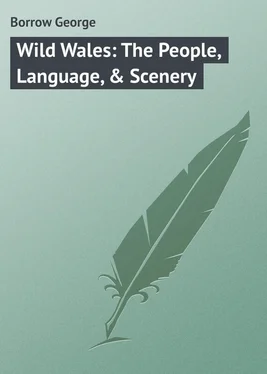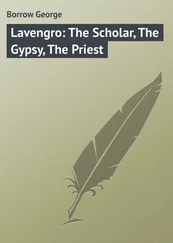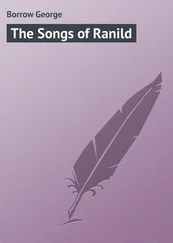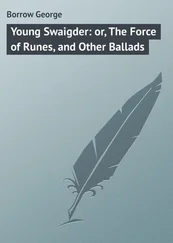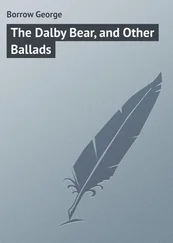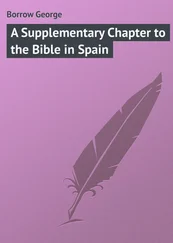George Borrow - Wild Wales - The People, Language, & Scenery
Здесь есть возможность читать онлайн «George Borrow - Wild Wales - The People, Language, & Scenery» — ознакомительный отрывок электронной книги совершенно бесплатно, а после прочтения отрывка купить полную версию. В некоторых случаях можно слушать аудио, скачать через торрент в формате fb2 и присутствует краткое содержание. Жанр: foreign_prose, Путешествия и география, на английском языке. Описание произведения, (предисловие) а так же отзывы посетителей доступны на портале библиотеки ЛибКат.
- Название:Wild Wales: The People, Language, & Scenery
- Автор:
- Жанр:
- Год:неизвестен
- ISBN:нет данных
- Рейтинг книги:5 / 5. Голосов: 1
-
Избранное:Добавить в избранное
- Отзывы:
-
Ваша оценка:
- 100
- 1
- 2
- 3
- 4
- 5
Wild Wales: The People, Language, & Scenery: краткое содержание, описание и аннотация
Предлагаем к чтению аннотацию, описание, краткое содержание или предисловие (зависит от того, что написал сам автор книги «Wild Wales: The People, Language, & Scenery»). Если вы не нашли необходимую информацию о книге — напишите в комментариях, мы постараемся отыскать её.
Wild Wales: The People, Language, & Scenery — читать онлайн ознакомительный отрывок
Ниже представлен текст книги, разбитый по страницам. Система сохранения места последней прочитанной страницы, позволяет с удобством читать онлайн бесплатно книгу «Wild Wales: The People, Language, & Scenery», без необходимости каждый раз заново искать на чём Вы остановились. Поставьте закладку, и сможете в любой момент перейти на страницу, на которой закончили чтение.
Интервал:
Закладка:
“And did the candle prognosticate, I mean foreshow his death?”
“It did, sir. When a person is to die, his candle is seen a few nights before the time of his death.”
“Have you ever seen a corpse candle?”
“I have, sir; and as you seem to be a respectable gentleman, I will tell you all about it. When I was a girl, I lived with my parents, a little way from here. I had a cousin, a very good young man, who lived with his parents in the neighbourhood of our house. He was an exemplary young man, sir, and having a considerable gift of prayer, was intended for the ministry; but he fell sick, and shortly became very ill indeed. One evening when he was lying in this state, as I was returning home from milking, I saw a candle proceeding from my cousin’s house. I stood still and looked at it. It moved slowly forward for a little way, and then mounted high in the air above the wood, which stood not far in front of the house, and disappeared. Just three nights after that my cousin died.”
“And you think that what you saw was his corpse candle?”
“I do, sir! what else should it be?”
“Are deaths prognosticated by any other means than corpse candles?”
“They are, sir; by the knockers, and by a supernatural voice heard at night.”
“Have you ever heard the knockers, or the supernatural voice?”
“I have not, sir; but my father and mother, who are now dead, heard once a supernatural voice, and knocking. My mother had a sister who was married like herself, and expected to be confined. Day after day, however, passed away, without her confinement taking place. My mother expected every moment to be summoned to her assistance, and was so anxious about her that she could not rest at night. One night, as she lay in bed, by the side of her husband, between sleeping and waking, she heard of a sudden, a horse coming stump, stump, up to the door. Then there was a pause – she expected every moment to hear some one cry out, and tell her to come to her sister, but she heard no farther sound, neither voice nor stump of horse. She thought she had been deceived, so, without awakening her husband, she tried to go to sleep, but sleep she could not. The next night, at about the same time, she again heard a horse’s feet coming stump, stump, up to the door. She now waked her husband and told him to listen. He did so, and both heard the stumping. Presently, the stumping ceased, and then there was a loud “Hey!” as if somebody wished to wake them. “Hey!” said my father, and they both lay for a minute, expecting to hear something more, but they heard nothing. My father then sprang out of bed, and looked out of the window; it was bright moonlight, but he saw nothing. The next night, as they lay in bed both asleep, they were suddenly aroused by a loud and terrible knocking. Out sprang my father from the bed, flung open the window, and looked out, but there was no one at the door. The next morning, however, a messenger arrived with the intelligence that my aunt had had a dreadful confinement with twins in the night, and that both she and the babes were dead.”
“Thank you,” said I; and paying for my ale. I returned to Llangollen.
CHAPTER XII
A Calvinistic Methodist – Turn for Saxon – Our Congregation – Pont y Cyssylltau – Catherine Lingo.
I had inquired of the good woman of the house in which we lived whether she could not procure a person to accompany me occasionally in my walks, who was well acquainted with the strange nooks and corners of the country, and who could speak no language but Welsh; as I wished to increase my knowledge of colloquial Welsh by having a companion, who would be obliged, in all he had to say to me, to address me in Welsh, and to whom I should perforce have to reply in that tongue. The good lady had told me that there was a tenant of hers who lived in one of the cottages, which looked into the perllan, who, she believed, would be glad to go with me, and was just the kind of man I was in quest of. The day after I had met with the adventures which I have related in the preceding chapter, she informed me that the person in question was awaiting my orders in the kitchen. I told her to let me see him. He presently made his appearance. He was about forty-five years of age, of middle stature, and had a good-natured open countenance. His dress was poor, but clean.
“Well,” said I to him in Welsh, “are you the Cumro who can speak no Saxon?”
“In truth, sir, I am.”
“Are you sure that you know no Saxon?”
“Sir! I may know a few words, but I cannot converse in Saxon, nor understand a conversation in that tongue.”
“Can you read Cumraeg?”
“In truth, sir, I can.”
“What have you read in it?”
“I have read, sir, the Ysgrythyr-lan, till I have it nearly at the ends of my fingers.”
“Have you read anything else besides the Holy Scripture?”
“I read the newspaper, sir, when kind friends lend it to me.”
“In Cumraeg?”
“Yes, sir, in Cumraeg. I can read Saxon a little, but not sufficient to understand a Saxon newspaper.”
“What newspaper do you read?”
“I read, sir, Yr Amserau .”
“Is that a good newspaper?”
“Very good, sir; it is written by good men.”
“Who are they?”
“They are our ministers, sir.”
“Of what religion are you?”
“A Calvinistic Methodist, sir.”
“Why are you of the Methodist religion?”
“Because it is the true religion, sir.”
“You should not be bigoted. If I had more Cumraeg than I have, I would prove to you that the only true religion is that of the Lloegrian Church.”
“In truth, sir, you could not do that; had you all the Cumraeg in Cumru you could not do that.”
“What are you by trade?”
“I am a gwehydd, sir.”
“What do you earn by weaving?”
“About five shillings a week, sir.”
“Have you a wife?”
“I have, sir.”
“Does she earn anything?”
“Very seldom, sir; she is a good wife, but is generally sick.”
“Have you children?”
“I have three, sir.”
“Do they earn anything?”
“My eldest son, sir, sometimes earns a few pence, the others are very small.”
“Will you sometimes walk with me, if I pay you?”
“I shall be always glad to walk with you, sir, whether you pay me or not.”
“Do you think it lawful to walk with one of the Lloegrian Church?”
“Perhaps, sir, I ought to ask the gentleman of the Lloegrian Church whether he thinks it lawful to walk with the poor Methodist weaver.”
“Well, I think we may venture to walk with one another. What is your name?”
“John Jones, sir.”
“Jones! Jones! I was walking with a man of that name the other night.”
“The man with whom you walked the other night is my brother, sir, and what he said to me about you made me wish to walk with you also.”
“But he spoke very good English.”
“My brother had a turn for Saxon, sir; I had not. Some people have a turn for the Saxon, others have not. I have no Saxon, sir, my wife has digon iawn – my two youngest children speak good Saxon, sir, my eldest son not a word.”
“Well, shall we set out?”
“If you please, sir.”
“To what place shall we go?”
“Shall we go to the Pont y Cyssylltau, sir?”
“What is that?”
“A mighty bridge, sir, which carries the Camlas over a valley on its back.”
“Good! let us go and see the bridge of the junction, for that I think is the meaning in Saxon of Pont y Cyssylltau.”
We set out; my guide conducted me along the bank of the Camlas in the direction of Rhiwabon, that is towards the east. On the way we discoursed on various subjects, and understood each other tolerably well. I asked if he had ever been anything besides a weaver. He told me that when a boy he kept sheep on the mountain. “Why did you not go on keeping sheep?” said I; “I would rather keep sheep than weave.”
Читать дальшеИнтервал:
Закладка:
Похожие книги на «Wild Wales: The People, Language, & Scenery»
Представляем Вашему вниманию похожие книги на «Wild Wales: The People, Language, & Scenery» списком для выбора. Мы отобрали схожую по названию и смыслу литературу в надежде предоставить читателям больше вариантов отыскать новые, интересные, ещё непрочитанные произведения.
Обсуждение, отзывы о книге «Wild Wales: The People, Language, & Scenery» и просто собственные мнения читателей. Оставьте ваши комментарии, напишите, что Вы думаете о произведении, его смысле или главных героях. Укажите что конкретно понравилось, а что нет, и почему Вы так считаете.
